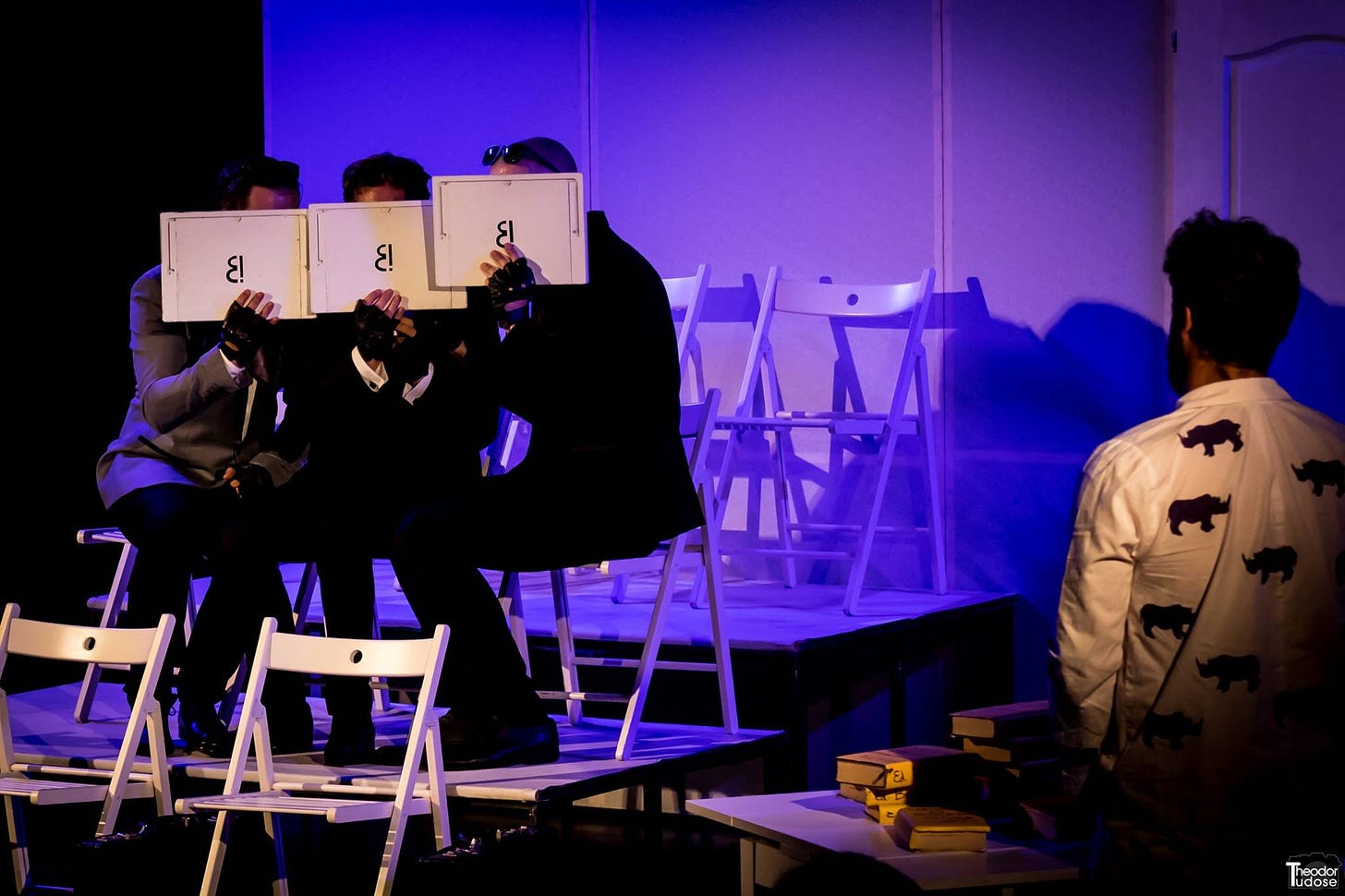Ionesco's 'Improvisation' and the playwright's plight

Eugen Ionesco’s one-act meta-theatrical play ‘Improvisation’ (original title: L’Impromptu de l’Alma), whose magisterial mise en scène at the National Theatre in Bucharest (Improvizație la Alma) I saw this weekend, has as much to say to us today as it did in 1956 when it opened at the Théâtre des Champs-Élysées. A satire about the world of theatre critic…
Keep reading with a 7-day free trial
Subscribe to Biblonia to keep reading this post and get 7 days of free access to the full post archives.

